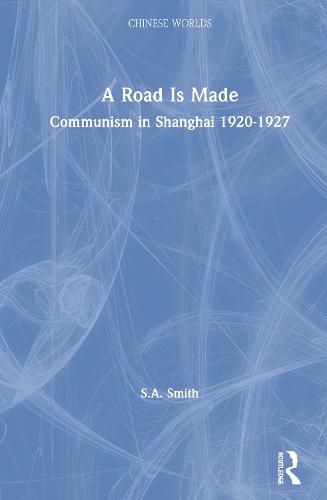Readings Newsletter
Become a Readings Member to make your shopping experience even easier.
Sign in or sign up for free!
You’re not far away from qualifying for FREE standard shipping within Australia
You’ve qualified for FREE standard shipping within Australia
The cart is loading…






This is a study of the activities, ideas and internal life of the Chinese Communist Party in Shanghai during its formative period. It investigates the party’s relations to the city’s students and teachers, women, entrepreneurs, secret societies and its workers, and examines the efforts to transform the CCP into a ‘Leninist’ party, exploring relations between intellectuals and workers, men and women, Chinese and Russians within the party. The book culminates in a detailed analysis of the three armed uprisings which led to the CCP’s briefly taking power in March 1927, before being crushed by troops loyal to Chiang Kai-shek. The study highlights the extent to which the Soviet Union sought to manipulate China’s national revolution, yet also reveals how divisions at every level of the Comintern allowed the CCP to achieve a degree of independence and to conduct policy at considerable variance with that laid down by Moscow.
$9.00 standard shipping within Australia
FREE standard shipping within Australia for orders over $100.00
Express & International shipping calculated at checkout
This is a study of the activities, ideas and internal life of the Chinese Communist Party in Shanghai during its formative period. It investigates the party’s relations to the city’s students and teachers, women, entrepreneurs, secret societies and its workers, and examines the efforts to transform the CCP into a ‘Leninist’ party, exploring relations between intellectuals and workers, men and women, Chinese and Russians within the party. The book culminates in a detailed analysis of the three armed uprisings which led to the CCP’s briefly taking power in March 1927, before being crushed by troops loyal to Chiang Kai-shek. The study highlights the extent to which the Soviet Union sought to manipulate China’s national revolution, yet also reveals how divisions at every level of the Comintern allowed the CCP to achieve a degree of independence and to conduct policy at considerable variance with that laid down by Moscow.